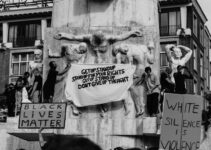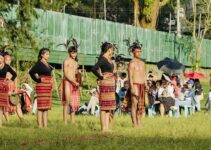If you've heard the saying, "Your vote is your voice," then you know the importance of voting rights. But do Indigenous Canadians have the same voting rights as everyone else? Let's dive into the topic of what voting rights Indigenous Canadians have and what challenges they may face. From the historical context to current legislation, there's a lot to consider. So, let's explore the status of Indigenous Canadians' voting rights and what the future holds for their participation in the democratic process.
Key Takeaways
- Indigenous Canadians were granted voting rights in 1960, but historical injustices and discriminatory policies continue to affect trust and participation in the electoral process.
- Voter suppression tactics disproportionately affect Indigenous communities, creating barriers to full participation and representation.
- Ongoing challenges include difficulties in accessing polling stations, lack of culturally sensitive voter registration procedures, and requirements for proof of residency through street addresses.
- Efforts to expand voting rights include initiatives addressing voter suppression, enhancing political representation, community engagement, voter education, and creating an inclusive electoral process.
Historical Context of Voting Rights
You gained the right to vote in federal elections in 1960, but historically, Indigenous Canadians faced significant barriers to exercising this fundamental democratic right. Colonial impact and discriminatory policies created systemic obstacles for Indigenous peoples to participate in the electoral process. For decades, government-imposed regulations, such as the Indian Act, disenfranchised Indigenous individuals, denying them the right to vote and participate fully in the democratic process. These policies were a direct reflection of the oppressive colonial attitudes that sought to marginalize and suppress Indigenous voices within the political sphere.
Additionally, the lack of recognition of Indigenous sovereignty and self-governance further compounded the voting rights issue, perpetuating a cycle of disenfranchisement and exclusion. These historical injustices continue to have lasting effects on Indigenous communities' trust in the electoral system and participation in political processes.
Understanding this historical context is crucial in acknowledging the deep-rooted challenges that Indigenous Canadians have faced in exercising their right to vote. It serves as a reminder of the resilience and strength demonstrated by Indigenous peoples in overcoming these barriers to reclaim their voice and rightful place in the democratic landscape.
Current Voting Rights Legislation
Indigenous Canadians frequently encounter barriers in exercising their voting rights due to ongoing legislative complexities and administrative challenges. The current voting rights legislation often creates hurdles for Indigenous representation in the democratic process. Despite some progress, there are still significant issues that need to be addressed. For instance, many Indigenous communities face difficulties in accessing polling stations, leading to disenfranchisement. Moreover, the lack of culturally sensitive voter registration procedures further compounds the problem. Additionally, the requirement for street addresses as proof of residency can be problematic for those living on reserves or in remote areas where such addresses may not exist in the traditional sense. These barriers prevent many Indigenous Canadians from fully participating in the electoral process, thereby undermining their representation in decision-making bodies. It is essential to reform the voting rights legislation to ensure that Indigenous voices are heard and their interests are adequately represented in the political landscape. Efforts should focus on creating more inclusive and accessible voting procedures that respect the unique needs and circumstances of Indigenous communities.
Challenges to Voting Rights
Facing discrimination at polling stations and encountering barriers during voter registration, Indigenous Canadians often struggle to fully exercise their voting rights. The challenges they face in exercising their voting rights are significant and multifaceted:
- Voter Suppression: Indigenous communities frequently encounter voter suppression tactics, such as inadequate polling stations and identification requirements that disproportionately affect them. This can lead to feelings of exclusion and alienation from the political process.
- Political Representation: The lack of adequate political representation of Indigenous voices in decision-making processes contributes to the challenges faced by Indigenous Canadians in exercising their voting rights. When their voices are not adequately represented, it can lead to a sense of disempowerment and disillusionment with the electoral system.
- Systemic Barriers: Structural barriers, including historical disenfranchisement, language barriers, and socio-economic disparities, create additional hurdles for Indigenous Canadians when attempting to participate fully in the democratic process. This systemic disadvantage can lead to frustration and a sense of being marginalized within the political landscape.
Efforts to Expand Voting Rights
Efforts to expand Indigenous Canadians' voting rights are underway through initiatives aimed at addressing voter suppression, enhancing political representation, and dismantling systemic barriers. Community engagement plays a crucial role in these efforts, ensuring that Indigenous voices are heard and that their concerns are taken into account. By fostering dialogue within Indigenous communities and with relevant stakeholders, the goal is to create an inclusive and participatory electoral process.
Voter education is another key component of these efforts. It aims to equip Indigenous Canadians with the knowledge and resources needed to navigate the voting process effectively. This includes providing information about registration procedures, polling locations, and voting rights. Furthermore, efforts are being made to raise awareness about the importance of political participation and the impact that Indigenous votes can have in shaping policies that directly affect their communities.
Future of Indigenous Voting Rights
You need to stay engaged with the ongoing developments that will shape the future of voting rights for Indigenous Canadians. The impact of these developments will be significant, influencing the representation, sovereignty, and autonomy of Indigenous peoples across the country.
- Impact: The future of Indigenous voting rights will have a profound impact on the political landscape, as it will determine the extent to which Indigenous voices are heard and considered in decision-making processes.
- Representation: The future of Indigenous voting rights is intricately linked to the representation of Indigenous peoples in government bodies. It will determine whether Indigenous communities have the opportunity to elect leaders who understand their unique needs and challenges.
- Sovereignty and Autonomy: The future of Indigenous voting rights will play a crucial role in upholding the sovereignty and autonomy of Indigenous nations. It will shape the ability of Indigenous communities to govern themselves and make decisions that are in line with their cultural values and traditions.
Staying informed and actively participating in discussions surrounding the future of Indigenous voting rights is essential to ensure that the rights and interests of Indigenous Canadians are upheld and respected.
Frequently Asked Questions
What Specific Barriers Do Indigenous Canadians Face When Trying to Exercise Their Voting Rights?
When exercising their voting rights, Indigenous Canadians face specific barriers such as lack of accessible polling stations, identification requirements, and systemic discrimination. Representation challenges also hinder their political participation. These obstacles contribute to the disenfranchisement of Indigenous communities and limit their ability to have a voice in the democratic process. It's crucial to address these issues and work towards creating a more inclusive and equitable voting system for Indigenous Canadians.
How Do Indigenous Voting Rights in Canada Compare to Those of Other Marginalized Groups?
When it comes to voting disparities in Canada, indigenous voting rights differ from those of other marginalized groups. Historical context plays a role in understanding this. Indigenous Canadians have faced unique barriers that have impacted their political representation. While some progress has been made, comparative analysis shows that there are still disparities in voting rights for indigenous communities. Despite this, it's important to continue working towards inclusive and equitable voting practices for all.
Are There Any Grassroots Organizations or Community-Led Initiatives Working to Address Voting Rights Issues for Indigenous Canadians?
Grassroots initiatives and community advocacy play a crucial role in addressing voting rights issues for Indigenous Canadians. These efforts are driven by a deep commitment to equality and justice. Many organizations led by Indigenous community members are working tirelessly to ensure that voting rights are upheld and protected. Through grassroots organizing and community-led initiatives, Indigenous Canadians are actively advocating for fair and accessible voting processes that honor their rights and voice in the democratic process.
How Do Cultural and Language Barriers Impact Indigenous Canadians' Ability to Participate in the Electoral Process?
Cultural inclusion and language accessibility greatly impact Indigenous Canadians' participation in the electoral process. Barriers like limited availability of materials in Indigenous languages and lack of culturally relevant information can make voting challenging. These challenges can create feelings of exclusion and disempowerment. It's important to prioritize efforts to address these barriers, ensuring that Indigenous people can fully engage in the electoral process and have their voices heard.
What Role Do Traditional Indigenous Governance Systems and Decision-Making Processes Play in Shaping Voting Rights for Indigenous Communities?
Traditional governance and decision-making are integral to indigenous voting rights. Community initiatives help overcome cultural and language barriers, ensuring inclusivity and representation. Indigenous systems foster a sense of belonging and empowerment, shaping voting processes to reflect community values. Understanding and respecting these practices is crucial for meaningful engagement. Embracing indigenous perspectives enriches the democratic process, fostering unity and understanding.
Conclusion
As an Indigenous Canadian, your voting rights have been historically challenged, but efforts are being made to expand and protect them. The future looks promising as more people recognize the importance of your voice in shaping the country's direction. Your ancestors fought for these rights, and now it's your turn to continue the legacy and make your voice heard through the power of the vote. Keep pushing for progress and change.



